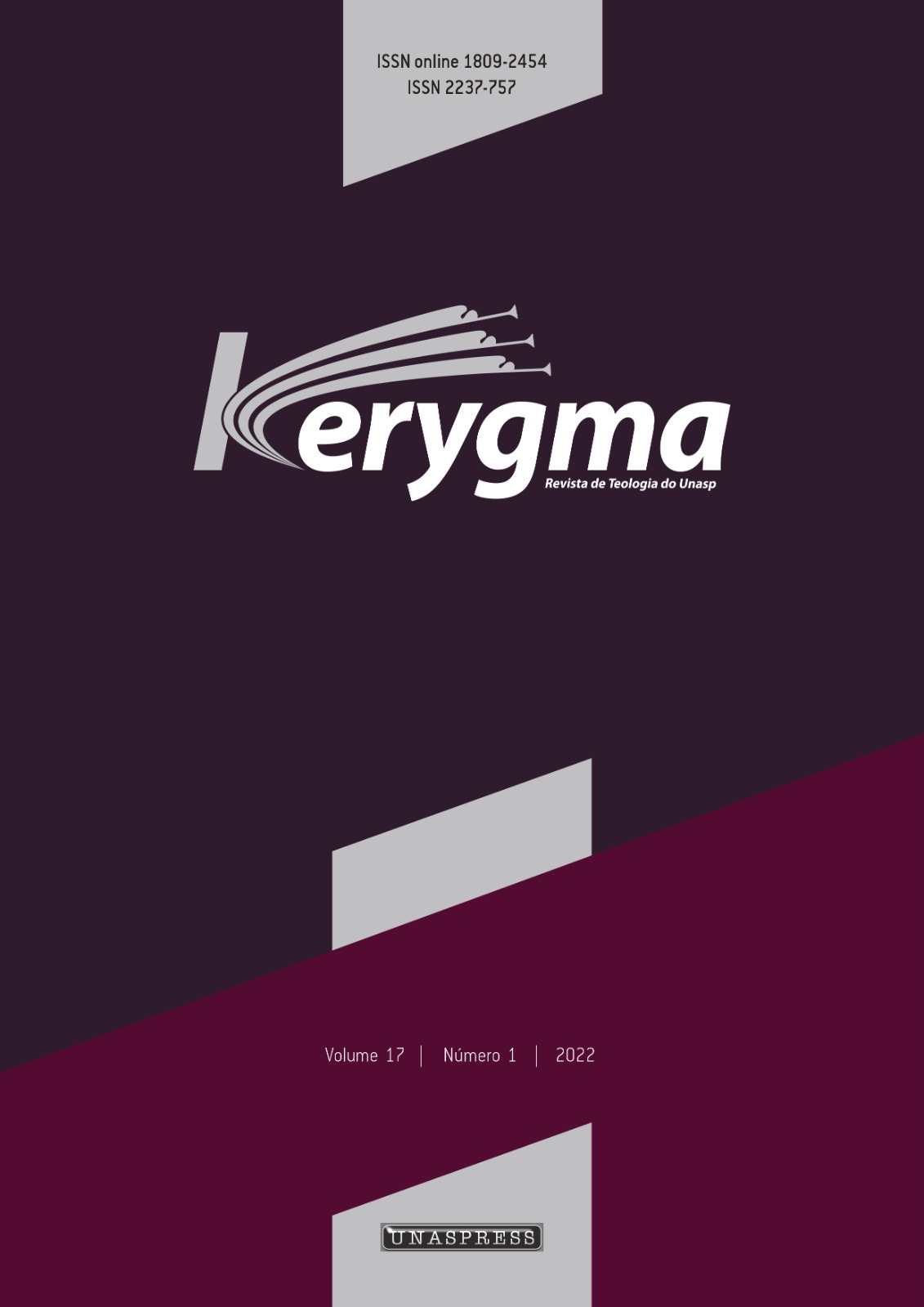O ser humano e a natureza: um ensaio bíblico-teológico-ontológico
DOI:
https://doi.org/10.19141/1809-2454.kerygma.v17.n1.pe01581Palavras-chave:
Meio Ambiente, Bíblia, Ser Humano, NaturezaResumo
O presente ensaio é um exercício teórico e exegético que busca analisar a relação dos seres humanos com a natureza de um ponto de vista bíblico-teológico-ontológico. Uma inspeção cuidadosa da bíblica revela que nela existem as bases filosóficas e morais necessárias para que a humanidade use a natureza de forma sábia, sem que, para tal, seja necessário eliminar o excepcionalismo humano. Em vez de ser justificativa para degradar o mundo natural, a teologia cristã oferece um conjunto de princípios e valores para orientar as relações entre os seres humanos e a natureza.
Downloads
Referências
BERNARDIN, P. O império ecológico: a subversão da ecologia pelo globalismo. Campinas: Vide Editorial, 2015.
GRIM, J.; TUCKER, E. Ecology and religion. Londres: Island Press, 2014.
JOERSTAD, M. The Hebrew Bible and environmental ethics: humans, nonhumans, and the living landscape. Cambridge: Cambridge University Press, 2019.
JONES, P. Verdade do evangelho x mentiras pagãs. São Paulo: Cultura Cristã, 2007.
PROCTOR, J. D.; BERRY, E. Social science on religion and nature. In: in TAYLOR, B. (Ed.). Encyclopedia of religion and nature. Londres; Nova York: Thoemmes Continuum, 2005.
SCHAEFFER, F. A. Poluição e a morte do homem: uma perspectiva cristã da ecologia. São Paulo: Cultura Cristã, 1986.
STEFFEN, L. H. In defense of dominion. Environmental Ethics, v. 14, p. 63-80, 1992.
STOLL, R. M. Inherit the holy mountain: religion and the rise of American environmentalism. Nova York: Oxford University Press, 2015.
TAYLOR, B. (ed.) Encyclopedia of religion and nature. Londres; Nova York: Continuum, 2005.
WEXLER, J. When God isn’t green: a worldwide journey to places where religious practice and environmentalism collide. Boston: Beacon Press, 2016.
WHITE JR., L. The historic roots of our ecologic crisis. Science, v. 155, p. 1203-1207, mar. 1967.
Downloads
Publicado
Como Citar
Edição
Seção
Licença
Copyright (c) 2022 Rodrigo Penna-Firme

Este trabalho está licenciado sob uma licença Creative Commons Attribution 4.0 International License.
Declaração de direitos autorais
Em síntese, autores que publicam na Kerygma devem concordar que:
-
Após a aceitação, os direitos autorais dos artigos são transferidos à Kerygma.
-
Todo material de terceiros utilizado no texto deve estar corretamente referenciado.
-
Os autores devem possuir autorização para uso de imagens, tabelas e demais materiais gráficos.
-
Os autores asseguram que o texto é original, de sua autoria, e não foi submetido ou publicado em outro veículo.
-
As ideias e opiniões expressas são de responsabilidade exclusiva dos autores, não refletindo necessariamente a posição da revista.
-
Os editores reservam-se o direito de realizar ajustes textuais e adequações às normas editoriais.
-
Os autores mantêm os direitos autorais e concedem à revista o direito de primeira publicação, sob licença Creative Commons Atribuição–Não Comercial 4.0 Internacional.
-
Os autores autorizam a reprodução e adaptação do material pela Kerygma, mediante participação ou autorização expressa quando necessário.
-
A revista poderá distribuir, armazenar, arquivar e disponibilizar os artigos por quaisquer meios físicos ou digitais, gratuitos ou pagos.
-
Os autores podem firmar contratos adicionais para distribuição não exclusiva do trabalho, com menção à publicação original na Kerygma.
-
A reprodução integral ou parcial dos textos em outros meios requer autorização prévia e escrita do editor.
-
Os autores são autorizados e incentivados a divulgar seus trabalhos online antes ou durante o processo editorial, visando ampliar seu impacto acadêmico.














